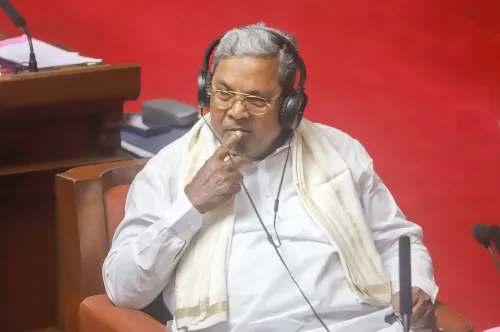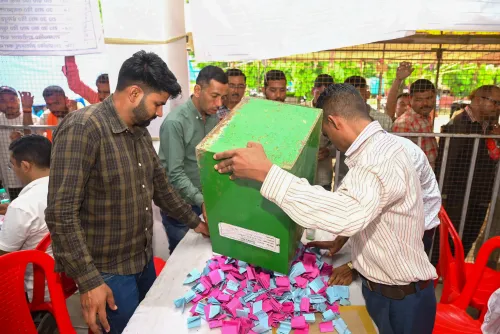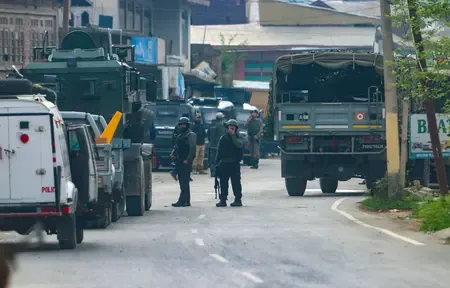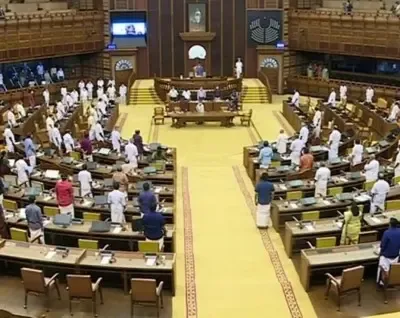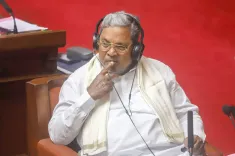How did Piyush Goyal and Keir Starmer deepen trade ties?
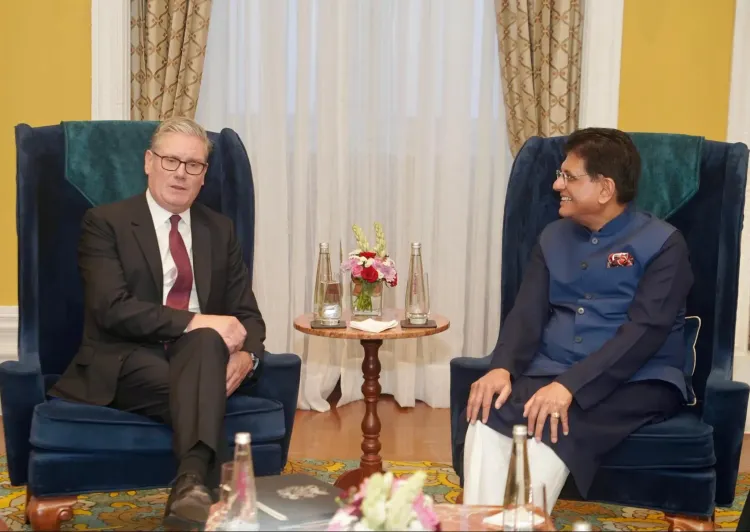
Synopsis
Key Takeaways
- Piyush Goyal and Keir Starmer focused on enhancing the India-UK trade partnership.
- The goal is to double bilateral trade by 2030.
- Key sectors for collaboration include advanced manufacturing and clean energy.
- Discussions emphasized the significance of regulatory cooperation.
- The India-UK CEO Forum plays a crucial role in fostering business relations.
Mumbai, Oct 9 (NationPress) Commerce and Industry Minister Piyush Goyal stated that his discussions with UK Prime Minister Keir Starmer on Thursday significantly enhanced the trade and economic partnership aimed at achieving mutual prosperity for both nations.
Starmer's visit to India commenced on Wednesday and brought along the largest trade delegation ever from the UK.
“I'm thrilled to engage with UK Prime Minister Keir Starmer. We explored options to strengthen the India-UK trade and economic relationship for our shared benefit,” Goyal shared on the X social media platform.
Goyal previously met with Peter Kyle, the UK Secretary of State for Business and Trade, to advance the operationalization of the India-UK Comprehensive Economic and Trade Agreement (CETA) and aim to double bilateral trade by 2030.
According to a statement from the Commerce Ministry, “The meeting represented a crucial step towards implementing the India-UK CETA, with both Ministers agreeing to restructure the Joint Economic and Trade Committee (JETCO) to oversee its execution and outcomes.”
Both parties emphasized their dedication to ensuring a swift, organized, and results-driven implementation of the Agreement, focusing on unlocking its full potential for enterprises and consumers in both nations.
The ministers reiterated their joint goal to double bilateral trade by 2030 by leveraging the synergies between their economies in sectors such as advanced manufacturing, digital trade, clean energy, and services.
Highlighting the transformative potential of CETA, they deliberated on how to optimize its advantages through regulatory collaboration, tackling non-tariff barriers, and enhancing supply chain integration.
The constructive meeting at the Commerce Secretary and Director General levels set a positive tone for the Ministerial discussions, which laid a robust groundwork for a full day of engaging and forward-looking conversations.
Prior to the bilateral meeting, several sector-specific roundtables occurred, focusing on priority areas like Advanced Manufacturing, Consumer Goods, Food and Drink, Science, Technology and Innovation, Construction, Infrastructure, Clean Energy, and Financial, Professional & Business Services (including IT/ITeS, education, and engineering). These dialogues united key figures from Indian and UK industries, offering valuable insights for effective implementation.
The India–UK CEO Forum was also convened, uniting business leaders from both nations to explore new avenues for trade, investment, and innovation.
Co-chaired by notable industry representatives from India and the UK, the Forum acted as a pivotal platform to enhance bilateral economic cooperation and fortify partnerships across different sectors. The discussions reaffirmed the mutual commitment of India and the UK to promote a modern, beneficial, and sustainable economic partnership, bolstered by the India-UK CETA.
On Thursday, Starmer and Prime Minister Narendra Modi were scheduled to assess progress under the India-UK Comprehensive Strategic Partnership through the ‘Vision 2035’ roadmap, a ten-year plan encompassing trade and investment, technology and innovation, defense and security, climate and energy, health, education, and person-to-person connections.

